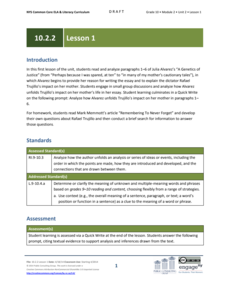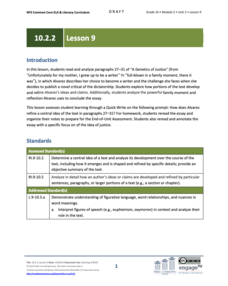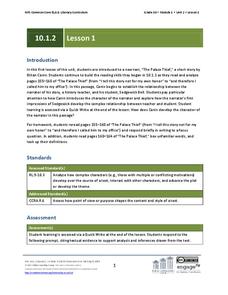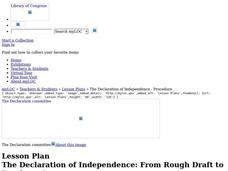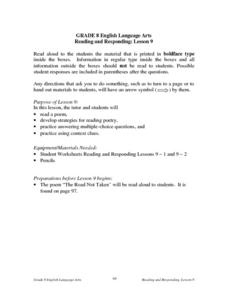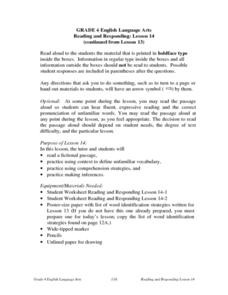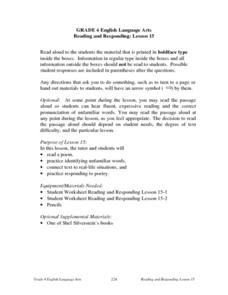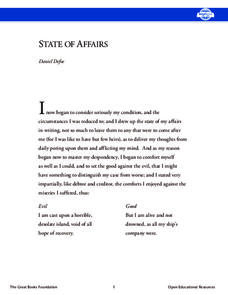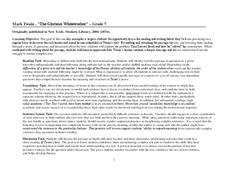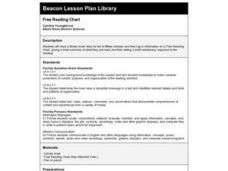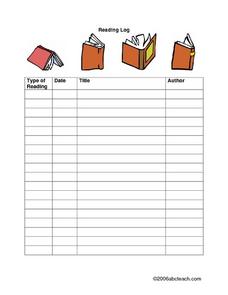EngageNY
Grade 9 ELA Module 1, Unit 2, Lesson 4
As a mid-unit assessment, class members demonstrate their understanding of the concepts covered so far by crafting a formal, multi-paragraph essay in which they analyze how Rainer Maria Rilke's word choices develop the meaning and tone...
California Education Partners
Eleven
It is difficult to articulate how growing up feels as accurately and beautifully as Sandra Cisneros does in her short story "Eleven." After seventh graders read the story and note the author's use of figurative language, they respond to...
EngageNY
Grade 10 ELA Module 2: Unit 2, Lesson 2
What is a megalomaniac? Scholars discover the word's meaning as they read and analyze paragraphs seven and eight from Julia Alvarez's essay "A Genetics of Justice." They also read Mark Memmott's article "Remembering to Never Forget" and...
EngageNY
Grade 10 ELA Module 2: Unit 2, Lesson 1
Rafael Trujillo was president of the Dominican Republic in the 1930s. Pupils read and analyze the first six paragraphs of Julia Alvarez's autobiographical essay "A Genetics of Justice," in which the author describes Trujillo's impact on...
EngageNY
Grade 10 ELA Module 2: Unit 2, Lesson 3
Does trauma have a lasting effect on people's lives? Scholars dive into the topic as they read paragraphs 9–11 of "A Genetics of Justice" by Julia Alvarez, in which the author describes her family's return to the Dominican Republic....
EngageNY
Grade 10 ELA Module 2: Unit 2, Lesson 8
How do people's relationships with their parents impact their lives? Scholars read paragraphs 23–26 from "A Genetics of Justice" by Julia Alvarez, in which the author details her relationship with her mother. Pupils discuss how the...
EngageNY
Grade 10 ELA Module 2: Unit 2, Lesson 9
How do authors develop the main ideas in their writing? Pupils consider the question as they read and analyze paragraphs 27–31 from Julia Alvarez's essay "A Genetics of Justice," in which Alvarez describes her decision to become a...
EngageNY
Grade 10 ELA Module 1: Unit 2, Lesson 1
The complex relationship between a teacher and his student takes center stage in an instructional activity that asks readers to pay close attention to how author Ethan Canin introduces his characters and how he develops the character of...
EngageNY
Grade 9 ELA Module 1: Unit 3, Lesson 5
Class members continue their study of Romeo and Juliet by watching scenes from Baz Luhrmann’s Romeo + Juliet and then examining the figurative language Shakespeare uses in Act 1, scene 5, lines 92–109 when Romeo and Juliet meet at the ball.
Curated OER
THE PEN VS. THE SWORD: LYRICAL RESPONSES TO A NATION AT WAR
Students brainstorm lists of songs that were written in response to American wars; consider the patterns in the lists they create.
Curated OER
Understanding the Declaration of Independence
Students identify and interpret the Declaration of Independence and the rights and privileges demanded in the document. They also identify how those rights and privileges have affected our history. Students then research about the...
Curated OER
The Declaration of Independence
Students examine the Declaration of Independence. In this colonial America lesson, students read literature regarding the document as well as excerpts of the document itself. Students also perform a Reader's Theatre script based on the...
Curated OER
The Declaration of Independence: From Rough Draft to Proclamation
Students discover how the Declaration of Independence transformed from a draft to a treasured historical document. In this Declaration of Independence lesson, students discuss the context in which Jefferson wrote the document and analyze...
Curated OER
Reading and Responding -- Lesson 9
Fourth graders work independently or in a small group with a tutor or teacher to (1) read a nonfictional selection, (2) practice drawing conclusions, (3) identify main ideas, and (4) practice responding to cause and effect questions.
Curated OER
Reading and Responding -- Lesson 14
Fourth graders work independently or in a small group to (1) read a fictional passage, (2) use context clues to define unfamiliar vocabulary, (3) use comprehension strategies, and (4) make inferences. Reading passages and comprehension...
Curated OER
Reading and Responding -- Lesson 15
Fourth graders work independently or in a small group to (1) read a poem, (2) identify unfamiliar words, (3) connect text to real-life situations, and (4) respond to poetry. Reading passage, comprehension questions, and teacher script...
Curated OER
Please Read Quietly
Students become fluent readers by readling silently. They gain a better comprehension and discover that silent reading is a tool for understanding books. As an assessment, the class reads a decodable book. Each student then writes a...
Great Books Foundation
State of Affairs
Good verses evil. Scholars make inferences after taking a close look at the short story, State of Affairs, in which Daniel Defoe goes back and forth comparing good and evil thoughts through his writing. After reading the text,...
Curated OER
The Glorious Whitewasher
Young readers can be exposed to the literary works of Mark Twain as they interact with challenging text and gain experience by reading the complex passages of chapter two "The Glorious Whitewasher" from his famous book, The Adventures of...
ReadWriteThink
Literature Circles: Getting Started
Make reading more enjoyable and interactive with literature circles! Here you'll find detailed lessons to begin the literature circle process. Ten lessons introduce each role learners take on. Literature circle roles include...
Mr. Ambrose
The Great Gatsby, F. Scott Fitzgerald
Good discussion questions, quizzes, and tests teach as well as assess. Readers of The Great Gatsby will learn much from the materials in a 36-page packet designed to help students prepare for the AP Literature exam. Included in the...
Curated OER
Free Reading Chart
Students read library books daily for ten to fifteen minutes, log information on Free Reading Chart, giving a brief summary of what they just read, and write brief reactionary response to the reading.
Curated OER
Reading Log
Fourth graders, after reading books in Language Arts, complete a database to assist them with book reports.
Curated OER
Charlotte's Web
Fourth graders focus on fluency by reading the book Charlotte's Web. In this reading strategies instructional activity, 4th graders partner read, do guided reading, and independent reading to increase fluency. Students use Venn...





